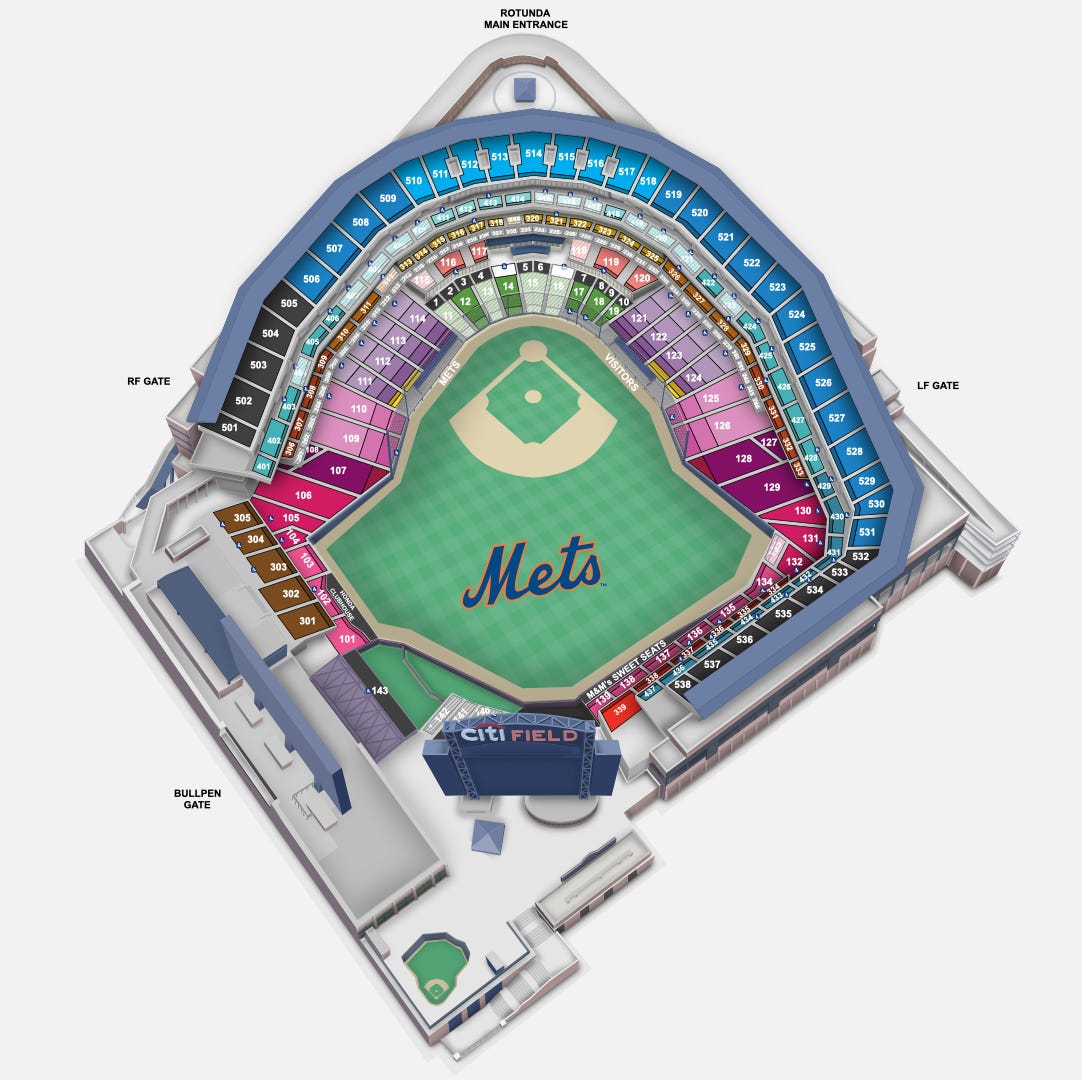Payroll Doesn't Determine Ticket Prices
The whole theory doesn't make any sense.
Rob Mains of Baseball Prospectus had an excellent column the other day on why player salaries don’t have anything to do with ticket prices. One screenshot shared on Twitter was particularly instructive: of the five teams whose payroll decreased most from 2019 to 2021, ticket prices fell very slightly for two, and rose for three. That should be it right there: payrolls fell dramatically, but ticket prices didn’t fall with them. There you go.
The screenshot:
But I have alarming news: this — “player salaries rising doesn’t cause ticket prices to also rise” — doesn’t seem to be that common a position. I shared the screenshot in two Mets fan groups, and was surprised to see a negative reaction. So in those same groups, I posted a simple poll: “When players make more money, does that cause ticket prices to increase?” The poll had two response options: “Yes, when players make more money it drives ticket prices up,” and “no, when players make more money it doesn’t drive ticket prices up.”
In one group, the first option got 34 votes, while the second got only 10. In the other, the first option — that player salaries are directly tied to ticket prices — got 24 votes. The second option — that they’re not — got only four.
Don’t tell me about scientific polling and response bias; I know about scientific polling and response bias. But still, a fair amount of people really seem to believe that ticket prices depend on player salaries.
So let’s talk about why ticket prices absolutely do not depend on player salaries. Mains makes the mathematical case, and that should be enough — but really, it’s just logic.
Let me postulate something: MLB teams set ticket prices to make the most money possible. No one can possibly disagree with that. You can think it’s a good thing or a bad thing or just the way the world works, but surely everyone is aware that the way teams set ticket prices is that they choose price levels that will allow them to make the most money possible. In a dramatically simplified version, maybe a front office’s internal data says they’ll make the most money if upper deck seats cost $25, mid-tier seats cost $50, and field-level seats cost $100. Maybe it’s $30-$40-$150. Maybe it’s $20-$50-$75. The actual numbers don’t matter; what matters is that ticket prices are designed to make the most money possible for teams, as determined by supply and demand. The owners like money. Why would they set their ticket prices any other way?
If that’s true — and everyone should agree that it is — then why would player salary have anything to do with ticket prices? Remember, ticket prices are already optimized to maximize revenue for the team, and changes in payroll have nothing to do with that. So if the Mets raise ticket prices in the absence of an increase in demand, it means one of two things: either A) the Mets are raising prices to levels that will lead to less revenue, for some reason sacrificing potential income out of pure spite or B) before the change, ticket prices had been lower than revenue-maximizing levels purely out of the goodness of the Mets’ hearts, but then they decided they could no longer afford to be so darn altruistic.
There’s a simple statement at the heart of this: owners want to maximize revenue, and they set their ticket prices to do that. So if they raise prices further, it’s not because they’re paying players more money: it’s because they’ve calculated that fans are willing to pay more for tickets. It’s all supply and demand.
To be clear, increased payroll can lead to increased ticket prices, because increased payroll can increase demand for tickets. The Mets signed Francisco Lindor to a $341-million contract, and they probably sold a lot of tickets in the aftermath. More people wanted to see the Mets, so ticket prices went up. That’s economics. That’s the intersection of the supply curve and the demand curve that I learned about freshman year. But what’s absolutely not happening is owners raising ticket prices as they raise payrolls because they’re somehow using one to pay for the other. In the absence of an increase in demand, if ticket prices are already maximizing revenue, then raising them means you make less money — and if there’s one thing we know the owners will absolutely not do, it’s make less money.
Tickets are already priced for maximum money to come in, which means any change to price levels will bring revenue down. So why would teams change their price levels after changing their payroll? Salaries have changed, but two things haven’t: the owners’ desire to maximize revenues, and the fundamental laws of economics. Those two unchanging constants are where ticket prices come from. Francisco Lindor’s salary has nothing to do with it.




The poster of the article is an idiot and Moron when it comes to economics